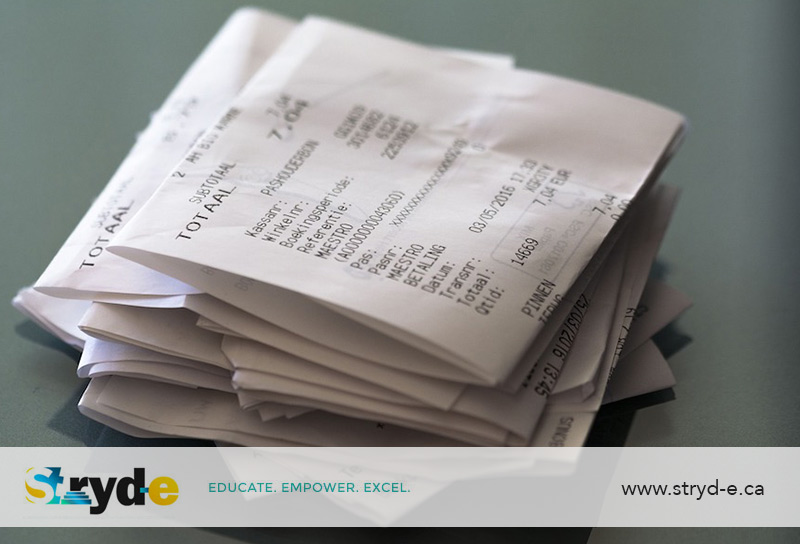Record Organizing Tips
Who loves receipts!
*silence*
Receipts are a necessary part of your business documentation. Receipts have different names depending on which side of the transaction you are on!
Invoice: This is something you (the business) GIVE to your customers. It is your revenue and if a customer doesn’t pay it right away you have a receivable.

Bills: This is something you (the business) GET from your vendors. It is your expense and if you don’t pay right away it is a payable. A bill to you, is an invoice to your Vendor. That’s why bills often have the word “Invoice” on them.
Are you still with me?
Bills come in many different forms. Companies usually issue “invoices” to you when services are rendered which have an invoice #, date and payment amount. Similarly, when you make retail purchases those bills are often referred to as a receipts. To help you keep track of them, keep a zip lock.
The easiest way to remember the difference is – do you OWE money or are you OWED money? If you owe – it’s a bill; if you are owed – it’s an invoice.
Now that semantics are out of the way; how do you organize them? By type? By month? What else?
As an accountant my advice is the following:
- Organize everything monthly into 3 categories
- Revenue
- Expenses
- Statements
- On each invoice you need to document the amount and date payment was received AND the source of the income (cash, credit etc).
- On each expense (bill/receipt) you should document: the date of purchase, name & address of seller, HST number, when & how you paid.
- The statements include bank and credit card showing transactions relating to earning business.
On top of all your revenue and operating expenses, keep the paperwork of properties you bought and sold as part of your business too. These should be kept separate as you will need to access them more frequently so I suggest a separate folder for these too!
The CRA can audit you for up to 6 years prior, so you need to have all your records for at least six years by law.
“Behind Every Great Business is a Great Accountant”




Leave a Reply